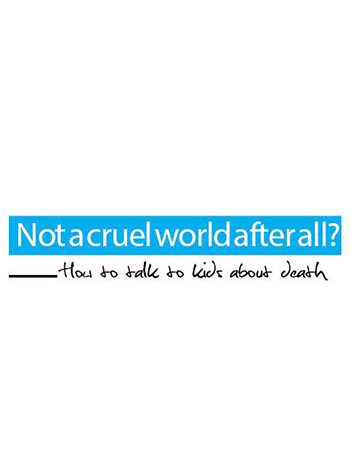How to talk to kids about death
Parents have a natural protective instinct towards their children; it’s an instinct that appears as early as the time the baby is still safe in the mother’s womb. Along with protection comes an enormous amount of fear, they want to keep their kids safe and sound at all times. Parents don’t just try to protect their kids from accidents; they don’t want them to know about accidents as well, especially those involving other kids their age.
It’s exciting to teach your kid how to paint or tie their shoe lace or ride a bike, it’s exciting to see him grasping the concept of adding numbers and to relate letters to words. It’s exciting to explain the fact that the huge belly of his mom is going to yield a baby brother or sister but it’s heartbreaking that you have to explain to your child death at a very young age, especially when it involves the death of someone their own age.
How do you explain such a harsh fact of life that even some adults have difficulty dealing with? How do you explain that death is in fact a part of life? How do you explain that one adult was heartless enough to terminate the life of innocent children?
There is no easy way to tell your child that negligence resulted in the tragic death of more than 50 children in the school bus accident in Asyut. There is no easy way to explain why a single violent or psycho man was responsible for the school massacre in Connecticut, USA resulting in the death of 20 kids, aged 5 to 10. Some parents could avoid mentioning accidents to their kids, but what would parents do if the kids saw the accident on TV or heard someone talking about it, or even knew one of the kids in the accident? How will their little minds comprehend such traumatic news?
Psychologists say that it all depends on the age of the child. There is no recommended way or appropriate age, but there are some basic steps that parents should follow.
First, kids should not know more than is required, a brief explanation is enough. They don’t have to watch it on TV over and over again or listen to horrific stories in details. Then let them express how they feel by talking or drawing.
Control how you react yourself, kids are born fearless, they will develop fear from the reactions they see. If they see their parents afraid then they will think this is how I should be feeling too, but if parents calmly explained that as terrible as this accident is, it’s how God created life with good and bad, then this is how they will see life, not a paradise but also not entirely a cruel place. Don’t hide the emotions as well, it is healthy for kids to know that grief and mourning are normal, that they help soften the shock and then resume normal life so the accident would not turn the fear into something more complicated.
Don’t give them false facts, don’t say those kids are sleeping or away on a trip, they have to know it is permanent to avoid confusion about death later. Kids might become clingy, have nightmares or keep on asking questions like why did this happen? Where did those kids go? Be there for them, hug them, answer them patiently and honestly.
Distract them from the idea of death to the idea of remembrance. Reminding the child of the lovely things those kids did, if they already knew them or focus on something positive that came out of this tragedy, like while the world lost those kids, there were good things that came out of it, for example, a legislation to stop carrying guns in schools, or a new protection measure taken to avoid bus accidents or that the person responsible for the accident was taken away and punished.
As hard as it is to hear about kids dying, it’s a heartbreaking lesson for adults too, sometimes grown ups have to witness a tragedy in order to force a change for the protection of precious kids.

